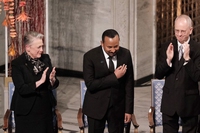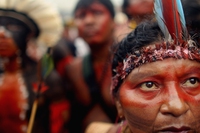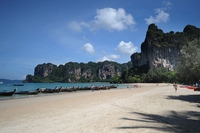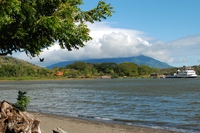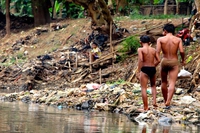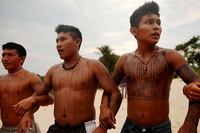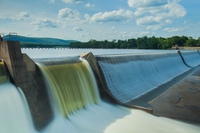
Guinea’s giant Souapiti dam is displacing and impoverishing thousands
A flawed resettlement process is robbing villagers of their homes and livelihoods to the pave way for the construction of the Souapiti dam in Guinea.
A flawed resettlement process is robbing villagers of their homes and livelihoods to the pave way for the construction of the Souapiti dam in Guinea.
Abiy Ahmed was awarded the Nobel Peace Prize for reaching peace with Eritrea. Yet, Indigenous groups in Ethiopia’s Lower Omo Valley have been abused by security forces, a fact that the prime minister must address, says the Oakland Institute.
The Belo Monte hydroelectric complex in Brazil was approved in 2005 even in the absence of the legally required environmental impact assessment and consultations with affected populations. Brazilian prosecutors have ruled the authorisation unconstitutional, multiples times. Yet after over a decade of legal attempts to block it, occupations, strikes and violence, Belo Monte is expected
In 2014 the small village of Tonsai was relocated to make space for a new mega-resort commissioned by the Sheraton. After relocating the village the hotel chain proceeded to build a concrete wall around their land. Tonsai is located on the coast of the Andaman Sea in the province of Krabi, in Thailand. A town that
Nicaragua is the third poorest country in Latin America and has been desperately searching for a solution to its economic problems. Many hope the construction of the Grand Canal joining the Atlantic and Pacific Oceans, expected to start in early 2016, will provide the nation with the answers it needs, namely employment, trade and an
Like other expanding megalopolises Jakarta, Indonesia’s capital and most populous city, faces tremendous challenges. High population growth, increasing house prices and land scarcity have reduced the availability of affordable housing. This has forced millions into living in informal settlements, commonly known as slums. Many of these are located along the Ciliwung River, one of Jakarta’s
Infrastructural developments carried out by governments, often with the participation of international organisations such as the World Bank, cause the forced eviction of countless communities in developing countries. These projects are evaluated in terms of their most immediate ends, without taking into consideration their long terms effects. Amongst which, too often, is the at times
